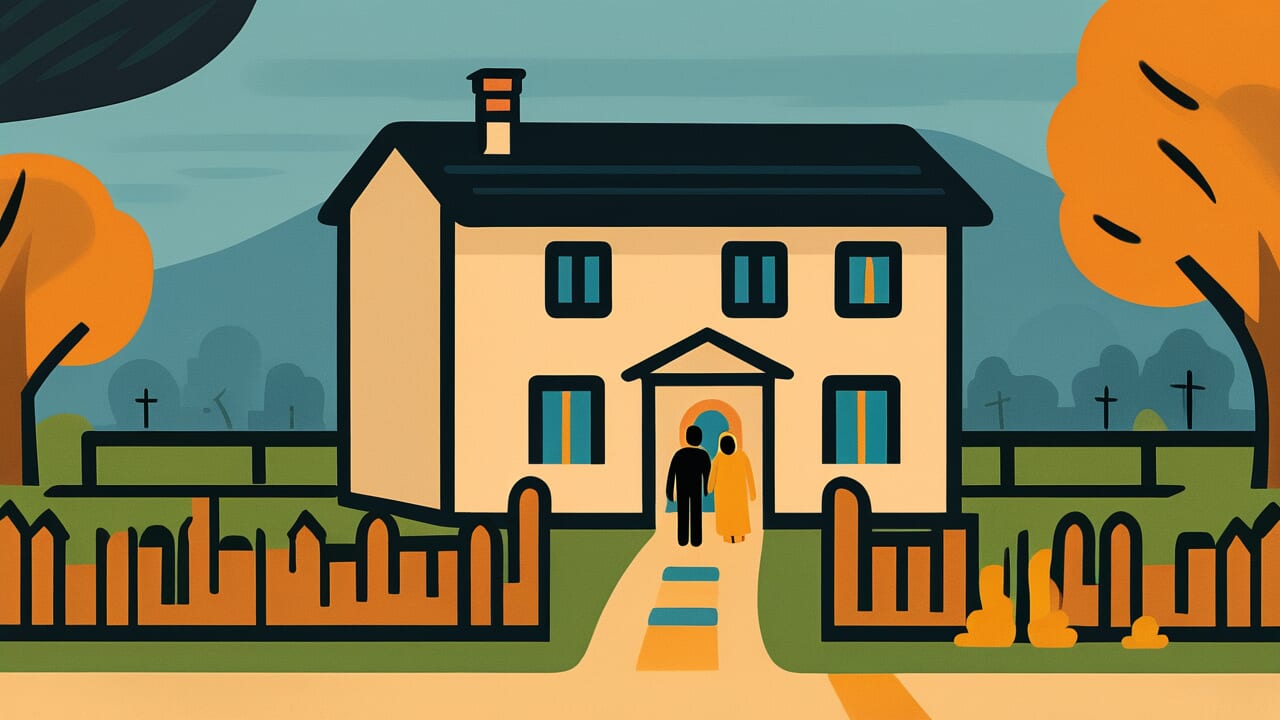How to Read “In a poor house, old friends grow distant”
Hinka ni wa kojin utoshi
Meaning of “In a poor house, old friends grow distant”
“In a poor house, old friends grow distant” means that when a family becomes poor, even friends and relatives who were once close gradually stop visiting. The relationship becomes distant over time.
The word “kojin” here doesn’t mean deceased people. It refers to old acquaintances and longtime friends.
This proverb expresses a harsh side of human relationships. When someone is financially well-off, many people gather around them. But when they become poor, people drift away.
This happens because poor people can no longer give gifts or host guests. Social interactions become difficult to maintain. Some people also avoid associating with those who are struggling financially.
Even today, this situation hasn’t changed. Economic hardship still affects human relationships just as it did in the past.
People use this proverb when lamenting the coldness of society. It expresses the loneliness of watching people leave when times get tough.
Origin and Etymology
There are no clear historical records about the exact origin of this proverb. However, we can learn interesting things by examining the words themselves.
The word “kojin” is particularly noteworthy. In modern Japanese, it means “deceased person.” But in classical Japanese, it meant “old acquaintance” or “longtime friend.”
So the “kojin” in this proverb doesn’t refer to dead people. It refers to people who have been close for a long time.
“Utoshi” means to become distant or to lose intimacy. The proverb clearly shows how poverty affects human relationships.
This saying likely emerged from Japan’s traditional culture of mutual support. In old Japanese society, relationships with relatives and friends involved gift-giving and hospitality.
Without economic resources, maintaining these social obligations became impossible. When people became poor, they couldn’t invite others over or give presents. Gradually, people stopped visiting.
Our ancestors observed this reality of human relationships carefully. They condensed this observation into these few words. This expression has been passed down through generations as a harsh but truthful insight into human nature.
Usage Examples
- After his business failed, people who were once close to him left one by one. It’s truly “In a poor house, old friends grow distant”
- No one helped him when he was struggling, but people suddenly gathered when he succeeded. “In a poor house, old friends grow distant” is so true
Universal Wisdom
“In a poor house, old friends grow distant” has survived because it touches on the fundamental fragility of human relationships.
Humans are social creatures. We want to connect with others and support each other. But at the same time, we have an instinct for self-preservation.
We feel torn between wanting to help those in trouble and not wanting to get dragged down ourselves. Many people choose the latter.
Looking deeper, human relationships always involve some form of exchange. This isn’t necessarily about money. It could be time, effort, emotions, or social status.
Some kind of value exchange happens in every relationship. Poverty disrupts this balance. When someone has less to give, the motivation to maintain the relationship weakens.
This is a cold reality, but it’s part of how human society works.
This proverb has survived for hundreds of years because human nature hasn’t changed. Our ancestors witnessed many times how people behave during prosperity and decline, wealth and poverty.
They passed down the wisdom gained from these observations. This saying is both a warning and a deep understanding of human nature.
When AI Hears This
Human relationship networks operate by laws surprisingly similar to internet link structures. Network science recognizes a phenomenon called “preferential attachment.”
This principle means new connections tend to concentrate on nodes that already have many connections. For example, websites that already have many links attract even more links. On social media, people with many followers gain even more followers.
The phenomenon of people not visiting poor houses can be explained by this same principle. People with economic resources can “invest” in relationships by hosting guests and giving gifts.
This creates new connections, which attract more connections. Meanwhile, poor households struggle to participate in ceremonies or prepare gifts. They can’t pay the cost of maintaining relationships.
Existing connections break, and new ones become harder to form. This self-reinforcing loop is mathematically proven. Left unchecked, it inevitably increases inequality.
Social isolation from poverty isn’t about individual personality or effort. It’s a mathematical property of network structures. From this perspective, preventing social isolation requires intentional intervention at the early stages of network formation.
Lessons for Today
This proverb teaches us to understand the nature of human relationships and then decide how to live.
First, stay humble during good times. Many people may gather around you not just for your personal charm. They might be attracted to something you have.
Understanding this reduces disappointment when circumstances change.
At the same time, this proverb offers a reverse perspective. When someone faces difficulties, how do you act? Because many people leave, staying by their side becomes incredibly valuable.
True friendship and bonds are tested not in good times but in hardship.
Most importantly, build relationships that don’t depend on economic wealth. Connections based on shared hobbies, values, and experiences are more resilient to changing circumstances.
By treating people sincerely every day and accumulating small kindnesses, real trust develops.
Don’t just lament the coldness of the world. Recognize that reality, then carefully nurture warm relationships. That’s the modern wisdom we can learn from this proverb.


Comments